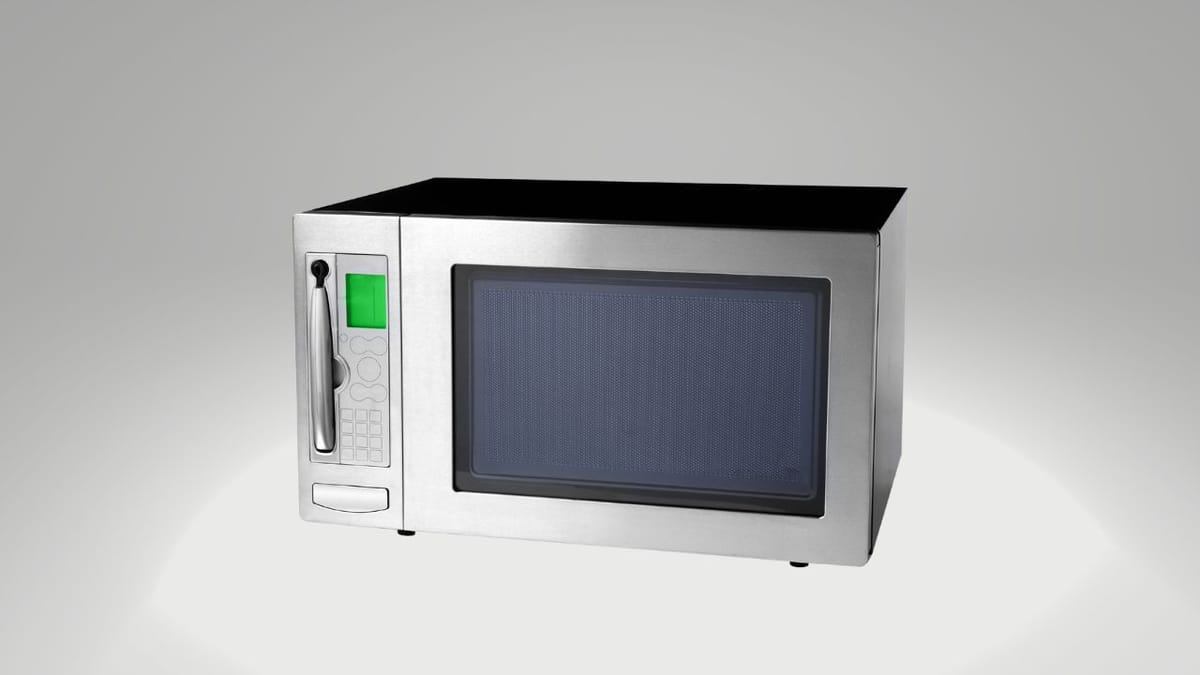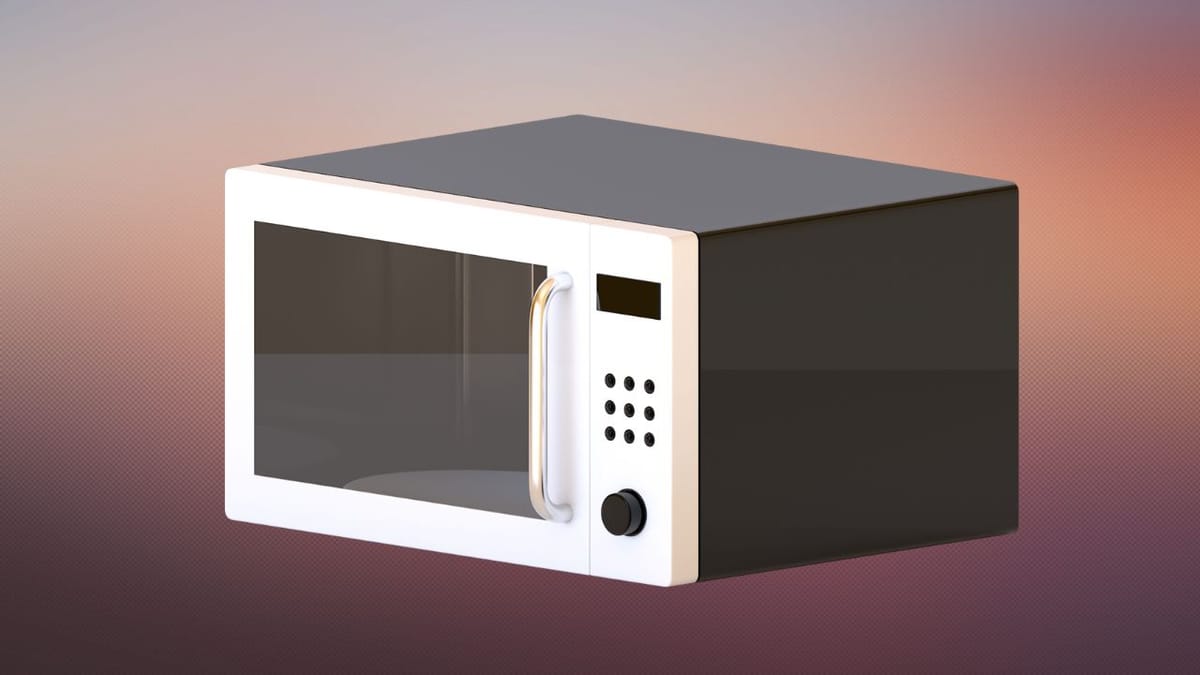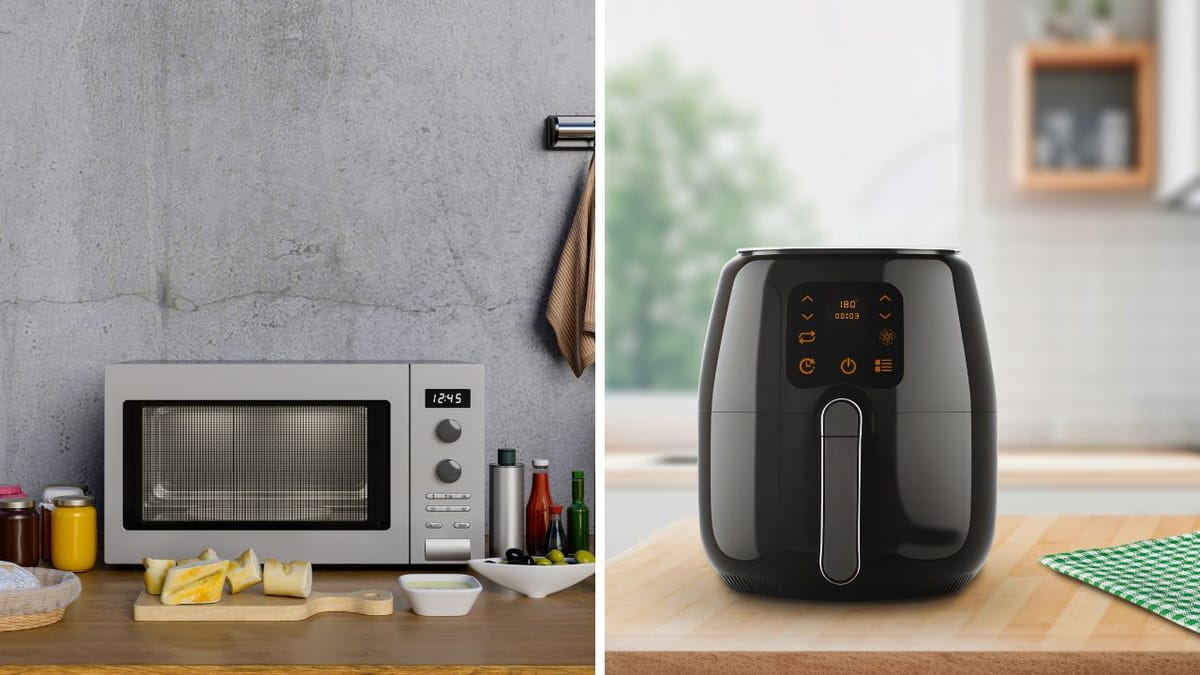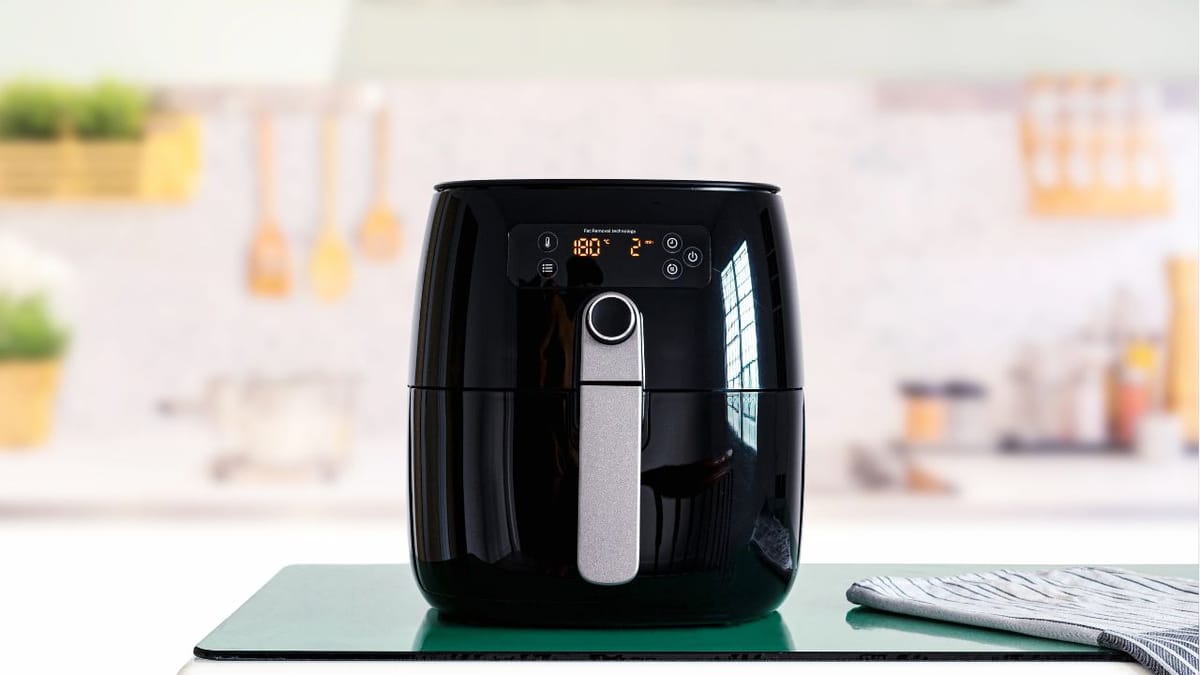Table of Contents
In the ever-evolving world of kitchen appliances, the air fryer has become a household name, promising to deliver crispy, delicious food without the guilt of deep frying. But as technology advances, a new contender has entered the ring: the air fryer microwave. This hybrid appliance claims to offer the best of both worlds, but is it truly superior to the traditional air fryer? Let's dive in and find out.
Key Takeaways:
- Understand the differences between air fryer microwaves and traditional air fryers.
- Learn about the efficiency and versatility of both appliances.
- Discover which appliance might be the best fit for your cooking needs and kitchen space.
With detailed and rigorous research, we provide our readers with the finest recommendations. Our recommendations are our opinions. Our cause is backed by reader support- for every click made through one of our affiliates links, a commission may be earned at no extra expense to you! As an Amazon Associate, Reviewsopedia may earn a commission from qualifying purchases. Thank you and enjoy!
What is an Air Fryer Microwave?
An air fryer microwave is a multi-functional appliance that combines the features of a traditional microwave oven with those of an air fryer. This innovative device allows you to cook, reheat, grill, and even bake, all while offering the air frying capability to achieve that coveted crispy texture. The convenience of having a single appliance that can perform multiple cooking tasks is a significant draw for consumers looking to save space and streamline their kitchen setup.
The technology behind air fryer microwaves involves the use of microwave radiation to heat food quickly, combined with a convection fan that circulates hot air around the food, mimicking the effect of deep frying without the need for excessive oil. This results in meals that are not only cooked rapidly but also have a healthier profile compared to traditional frying methods.
Traditional Air Fryers: A Focused Approach
Traditional air fryers are designed with one primary function in mind: to simulate the results of deep frying by circulating hot air around the food. They typically feature a compact design with a removable basket or tray where food is placed for cooking. The rapid air technology envelops the food in a consistent stream of hot air, producing a crispy exterior while keeping the interior moist.
While air fryers are limited to air frying, they are often celebrated for their efficiency in this singular task. They preheat quickly and can cook a variety of foods, from French fries and chicken wings to vegetables and even baked goods. The focused nature of traditional air fryers makes them a favorite for those who frequently enjoy fried foods but want a healthier option.
Comparing Cooking Efficiency
When it comes to cooking efficiency, both air fryer microwaves and traditional air fryers have their advantages. Air fryer microwaves are incredibly versatile, allowing you to switch between different cooking modes without needing separate appliances. This can save time and energy, especially when preparing meals that require multiple cooking methods.
On the other hand, traditional air fryers are often praised for their quick preheating times and consistent cooking results. They are specifically engineered to optimize the flow of hot air, which can lead to more evenly cooked food and a perfect crispy texture that many users desire. The efficiency of a traditional air fryer is hard to beat when it comes to air frying alone.
Versatility and Convenience
The versatility of an air fryer microwave is hard to overlook. With the ability to perform a variety of cooking functions, it's an all-in-one solution for many kitchen tasks. This can be particularly appealing for those with limited counter space or for individuals who prefer a minimalist approach to their kitchen appliance collection.
Traditional air fryers, while less versatile, offer a level of convenience that is specific to air frying. They are generally smaller and more portable, making them easy to store or move around as needed. For those who value simplicity and specialize in air-fried cuisine, the traditional air fryer remains a convenient choice.
Space and Kitchen Real Estate
Kitchen space is a valuable commodity, and the size of your appliances can make a significant difference in how your kitchen functions. Air fryer microwaves tend to be larger due to their multifunctional nature, which could be a drawback for those with smaller kitchens. However, the consolidation of multiple appliances into one can ultimately save space.
Traditional air fryers have a smaller footprint and can easily fit on most countertops or be stored in cabinets when not in use. If you're working with limited space and air frying is your primary concern, a traditional air fryer might be the more practical option.
Cost Considerations
When evaluating the cost of air fryer microwaves versus traditional air fryers, it's important to consider the value you're getting for the price. Air fryer microwaves are typically more expensive due to their multifunctional capabilities. If you're looking for an appliance that can replace several others, the investment might be justified.
Traditional air fryers, however, are generally more affordable and can offer excellent value, especially if air frying is the main function you're seeking. They are a cost-effective way to enjoy the benefits of air frying without the additional expense of added features you may not use.
Health and Nutritional Benefits
One of the primary reasons for the popularity of air fryers is the health benefits they offer by reducing the amount of oil needed for frying. Both air fryer microwaves and traditional air fryers allow for cooking with little to no oil, which can lead to lower calorie and fat content in your meals.
While both types of appliances can provide these health advantages, it's essential to consider the cooking methods you're most likely to use. If you're focused on air frying, a traditional air fryer is designed to maximize the health benefits of this cooking method. However, if you're looking for an appliance that encourages healthy cooking across various methods, an air fryer microwave might be the better choice.
Ease of Use and Cleaning
The user experience is crucial when it comes to kitchen appliances. Air fryer microwaves often come with a range of settings and features that can take some time to learn. However, once mastered, they offer a high degree of control and flexibility in cooking.
Traditional air fryers are typically straightforward to operate, with simple controls and quick setup. Cleaning is also an important factor to consider. Many air fryers come with non-stick baskets that are dishwasher safe, making cleanup a breeze. Air fryer microwaves may have more components to clean, depending on the cooking function used.
Durability and Longevity
The build quality and durability of your appliance will affect its longevity and performance over time. Air fryer microwaves are often constructed with multiple functions in mind, which can sometimes lead to a compromise in the durability of individual components. It's important to research brands and models to find one that is well-made and reliable.
Traditional air fryers are generally robust and designed to withstand the high heat and rapid air circulation required for air frying. With proper care and maintenance, a good quality air fryer can last for many years, providing consistent results with every use.
User Reviews and Testimonials
One of the best ways to gauge the effectiveness of an appliance is to look at user reviews and testimonials. Air fryer microwaves are relatively new on the market, but users often praise their convenience and the space-saving benefits they offer. Some reviews may point out a learning curve due to the complexity of functions.
Traditional air fryers have been around longer and have amassed a large number of positive reviews from users who appreciate their ease of use and the quality of the food they produce. Negative reviews tend to focus on issues such as size limitations or the lifespan of certain models.
Making the Right Choice for Your Kitchen
Deciding whether an air fryer microwave or a traditional air fryer is better for you comes down to your specific needs and preferences. Consider how much space you have, what types of cooking you do most often, and whether you value versatility over specialization. Both appliances offer the ability to cook healthier meals, but your cooking habits will ultimately determine the best fit for your kitchen.
Summary
In the debate between air fryer microwaves and traditional air fryers, there is no one-size-fits-all answer. Air fryer microwaves offer versatility and the convenience of multiple cooking functions in one appliance, which can be ideal for those with limited space or a preference for multifunctional devices. Traditional air fryers, on the other hand, excel in their dedicated purpose of air frying, providing quick, consistent results and ease of use. When choosing the right appliance for your kitchen, consider your cooking style, space, budget, and the importance of specialized versus versatile cooking functions.
FAQ Section
Can an air fryer microwave replace my traditional oven?
An air fryer microwave can perform many of the same functions as a traditional oven, including baking, roasting, and grilling. However, it may have size limitations compared to a full-sized oven.
Is food cooked in an air fryer microwave as healthy as food cooked in a traditional air fryer?
Yes, both appliances can cook food with little to no oil, offering similar health benefits. The key to healthy cooking is to use the air frying function and choose recipes that require minimal added fats.
Do traditional air fryers have a shorter lifespan than air fryer microwaves?
Not necessarily. The lifespan of either appliance depends on the build quality, brand, and how well it is maintained. Both can have long lifespans if properly cared for.
Other Related Articles



















